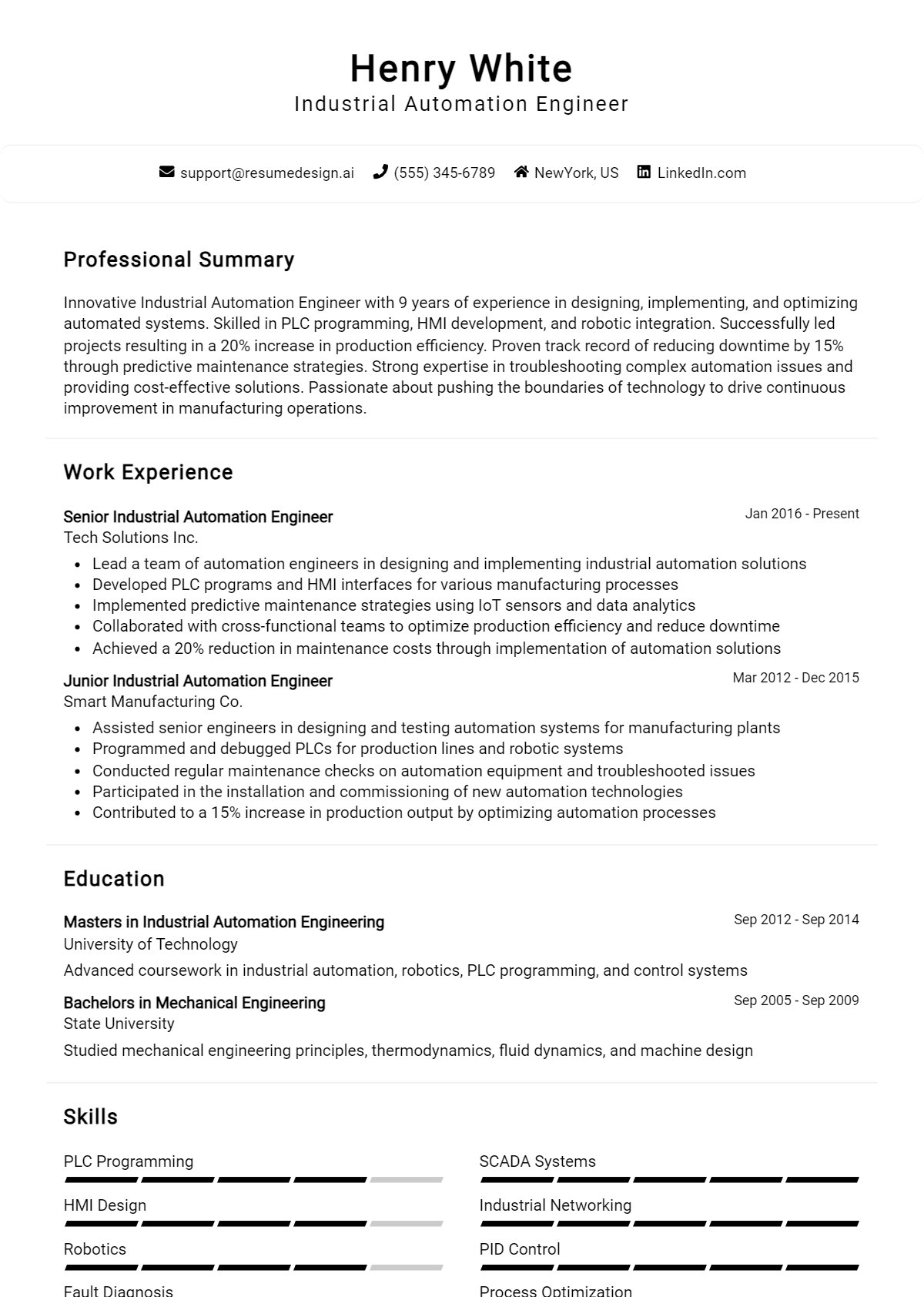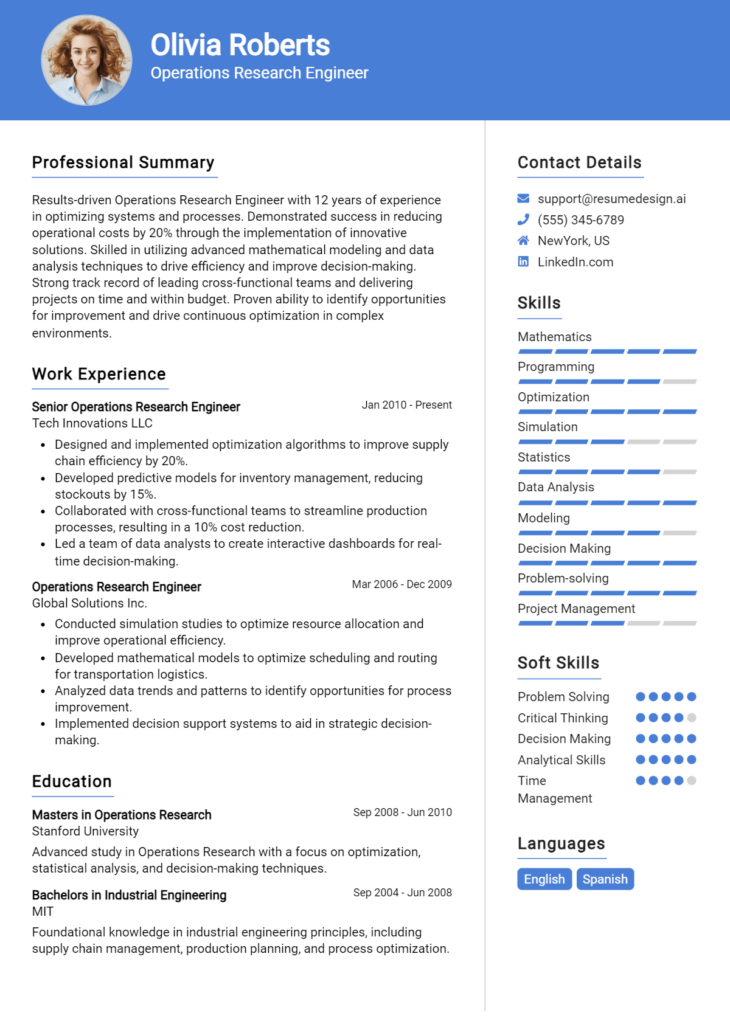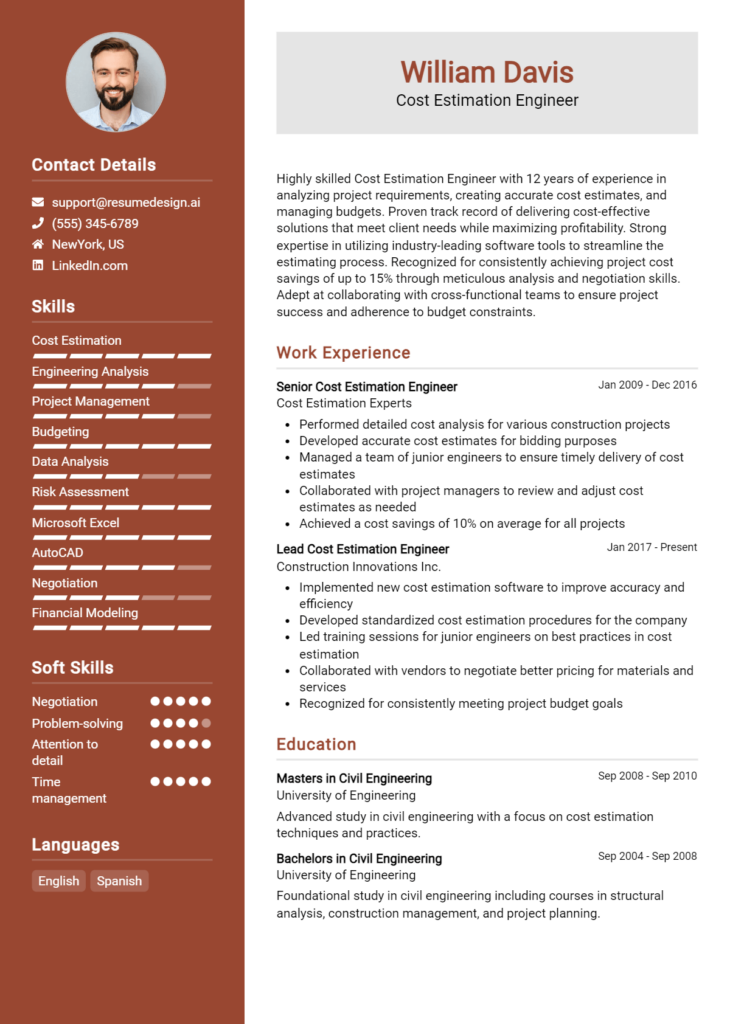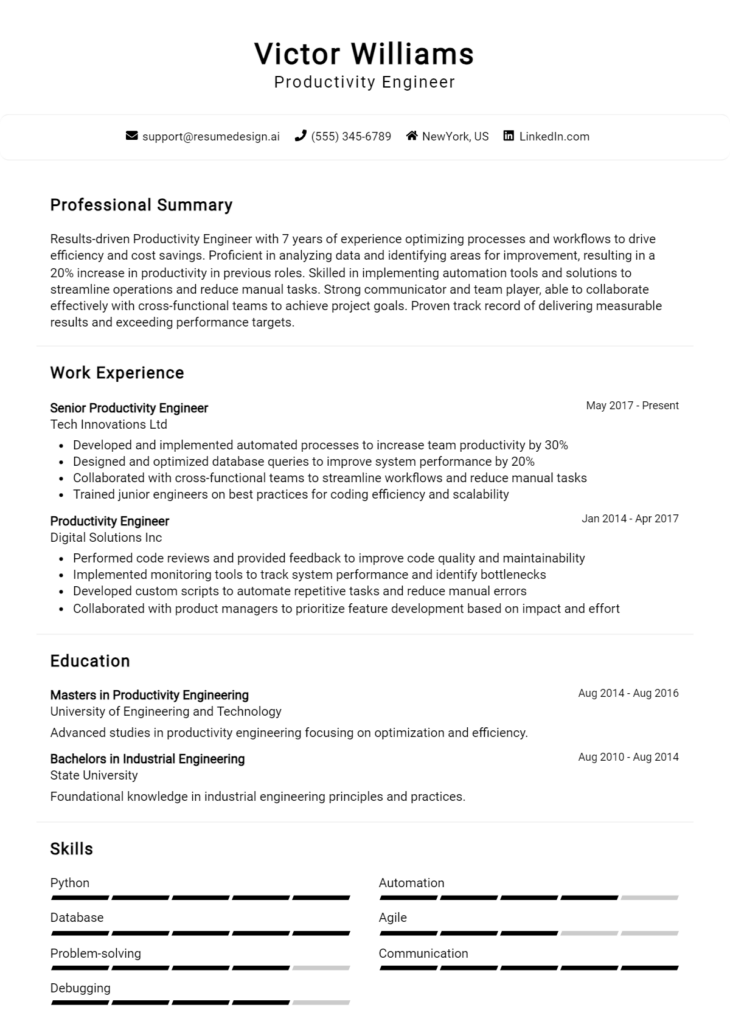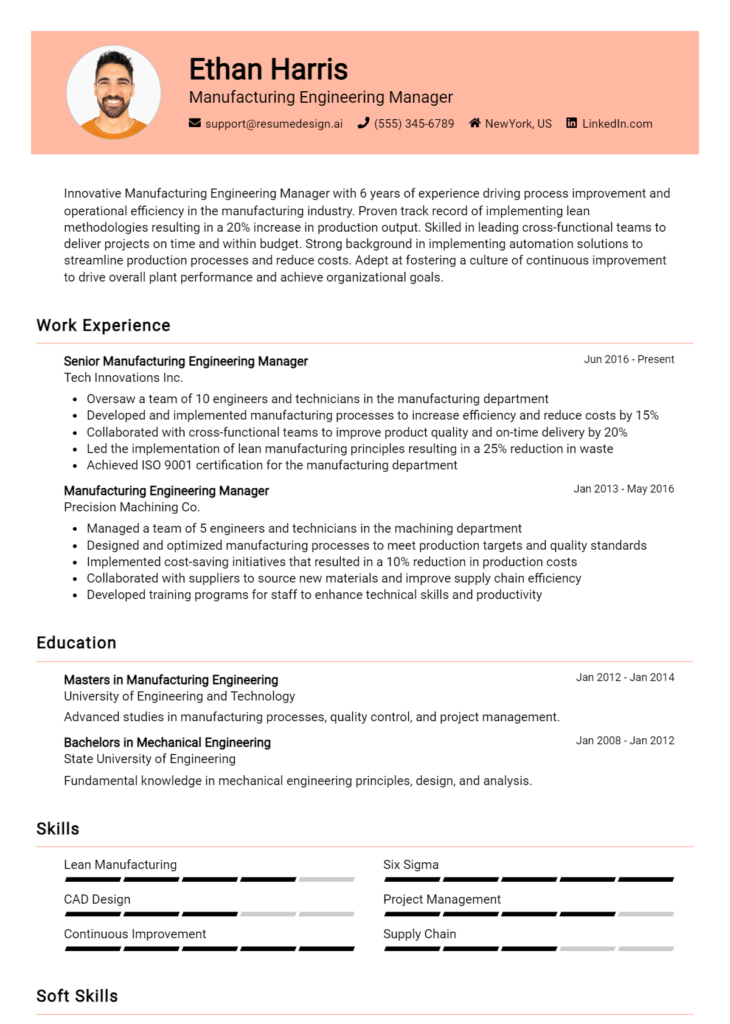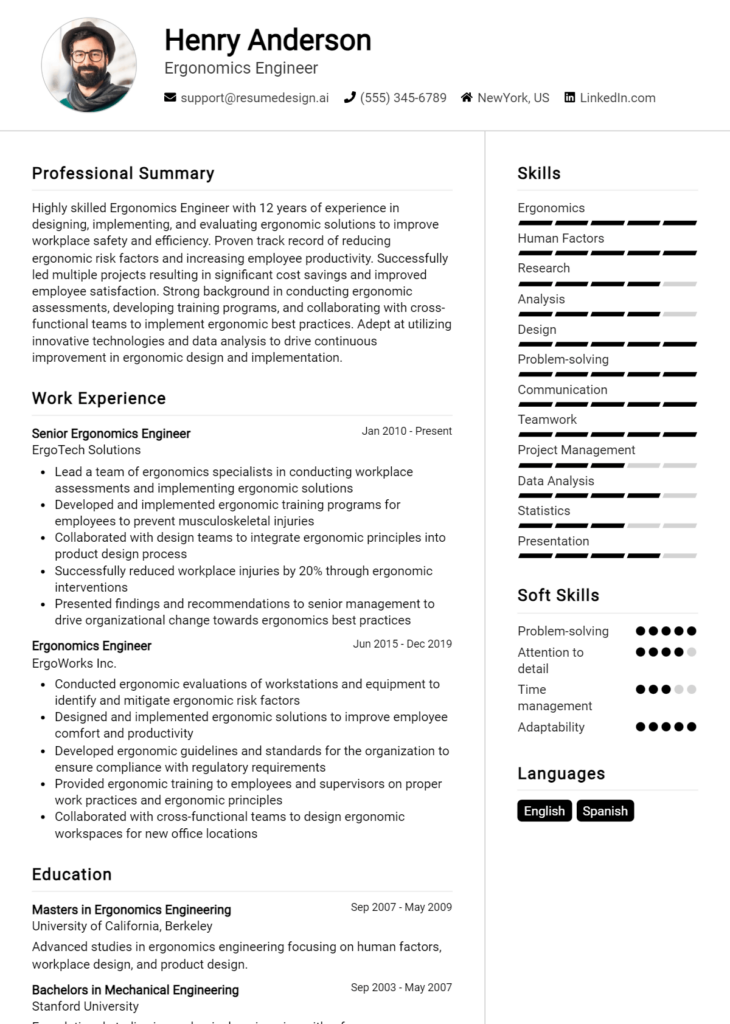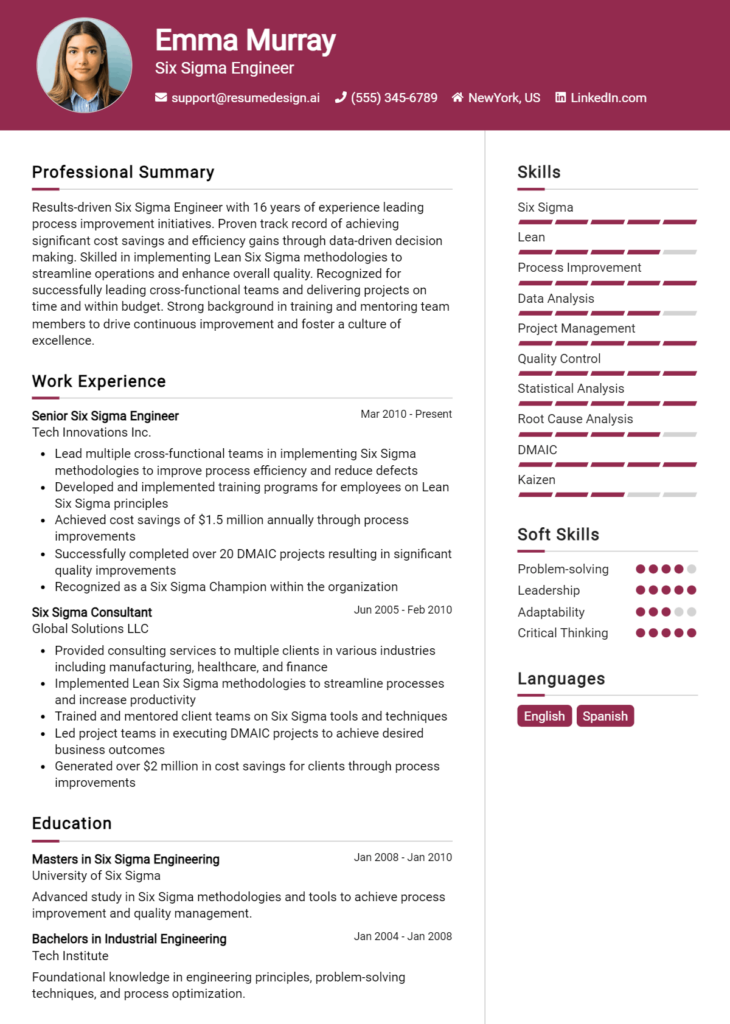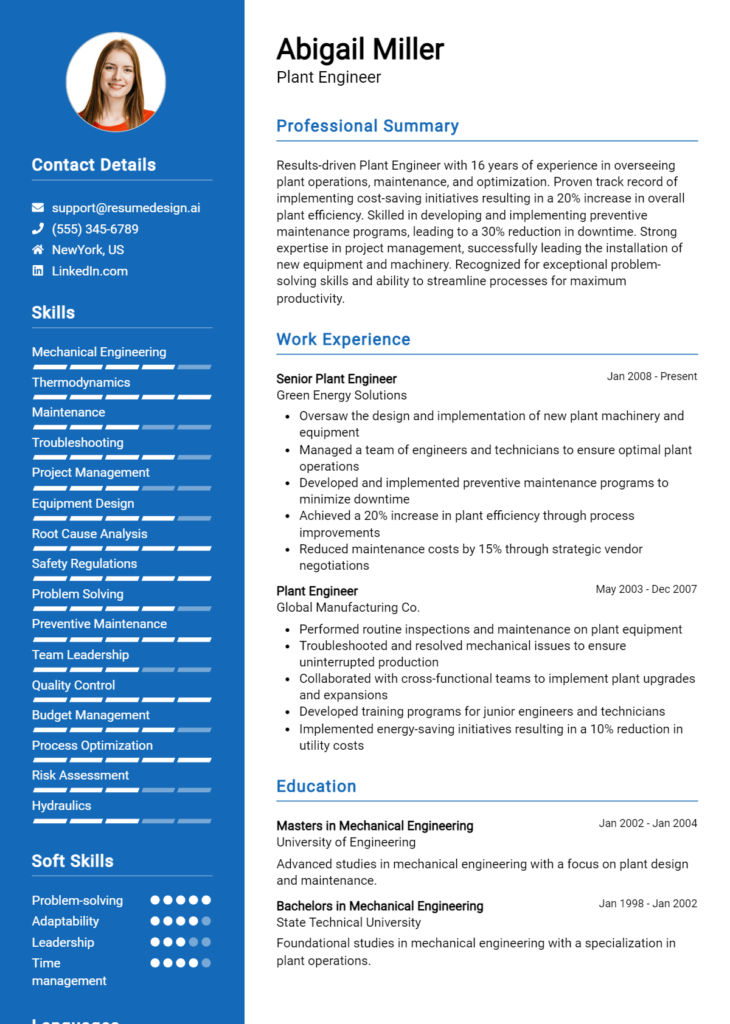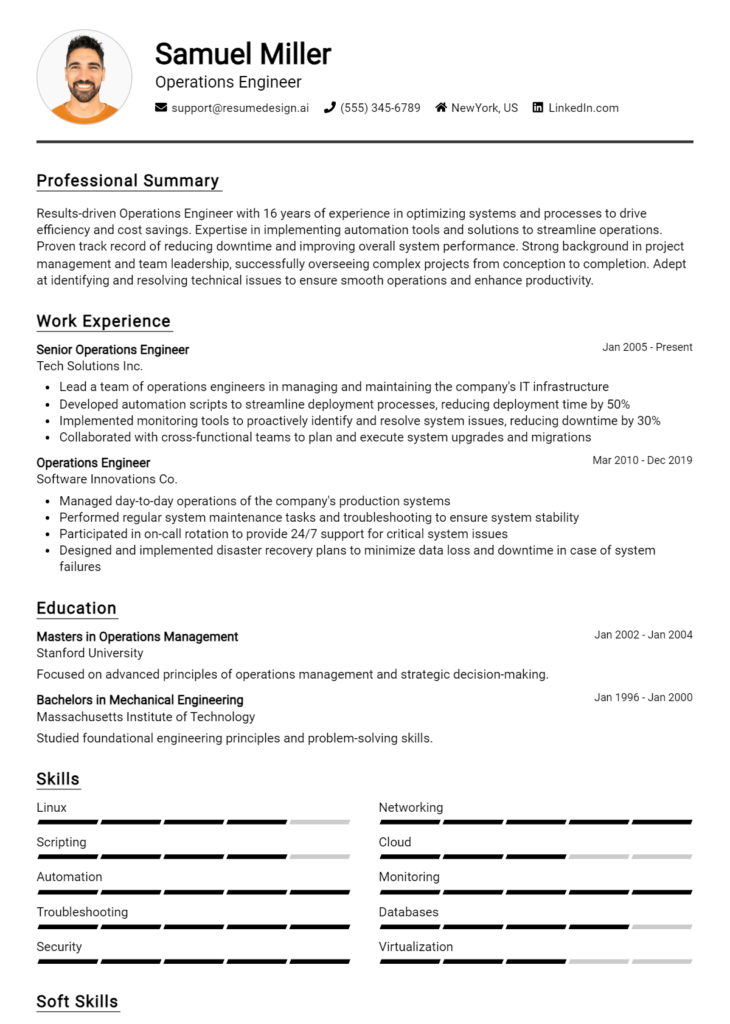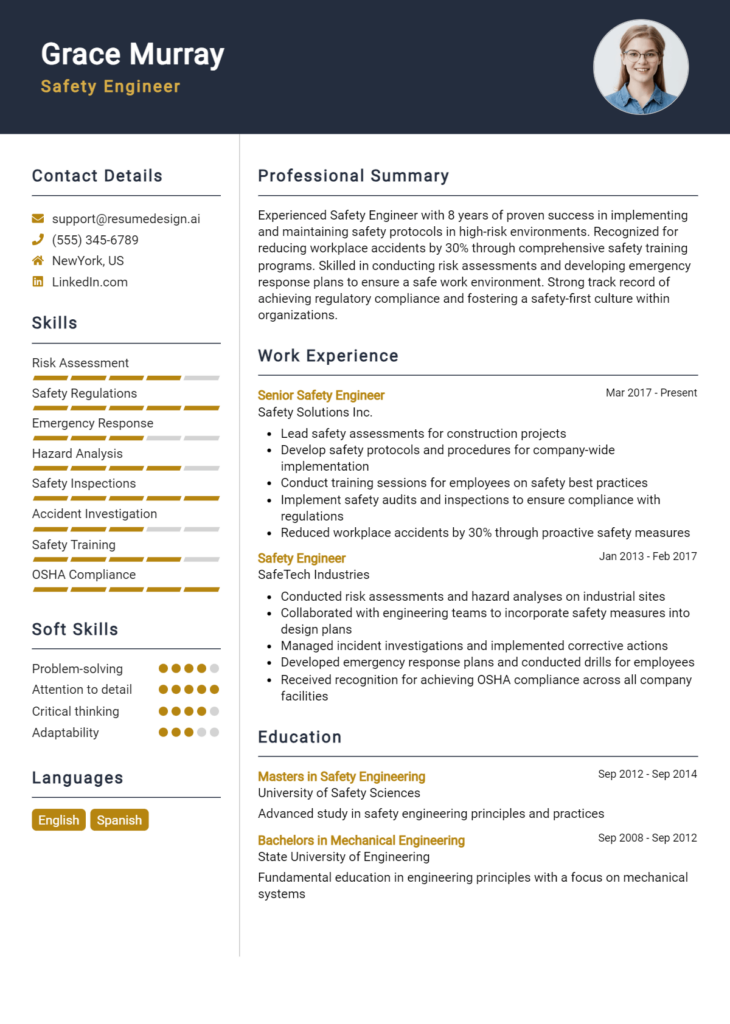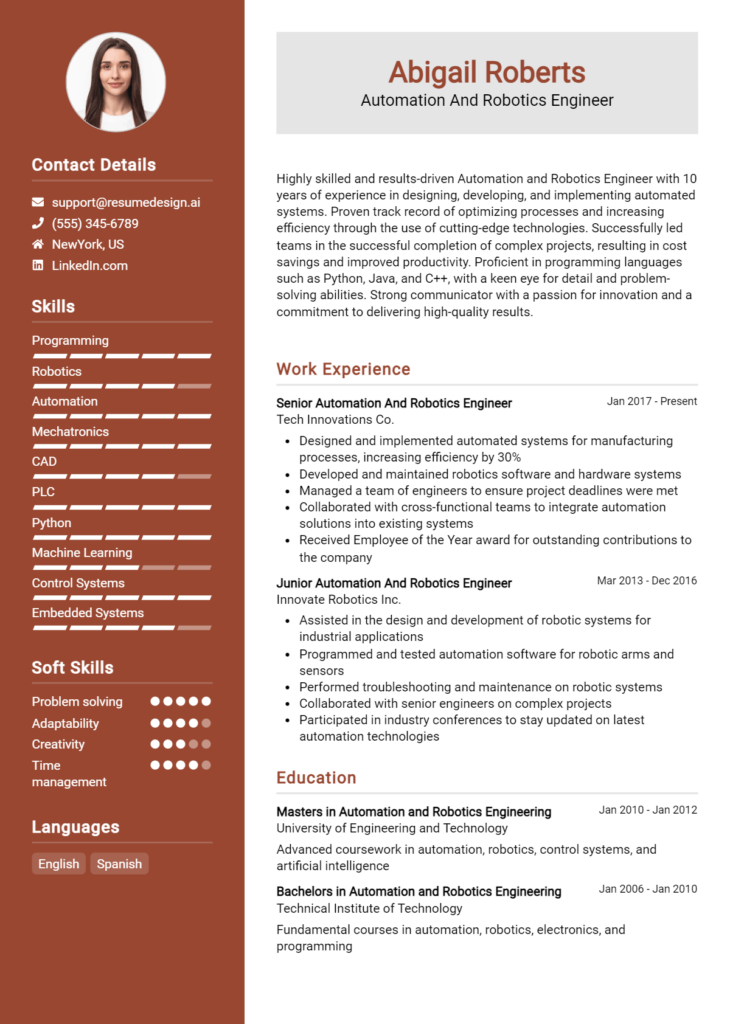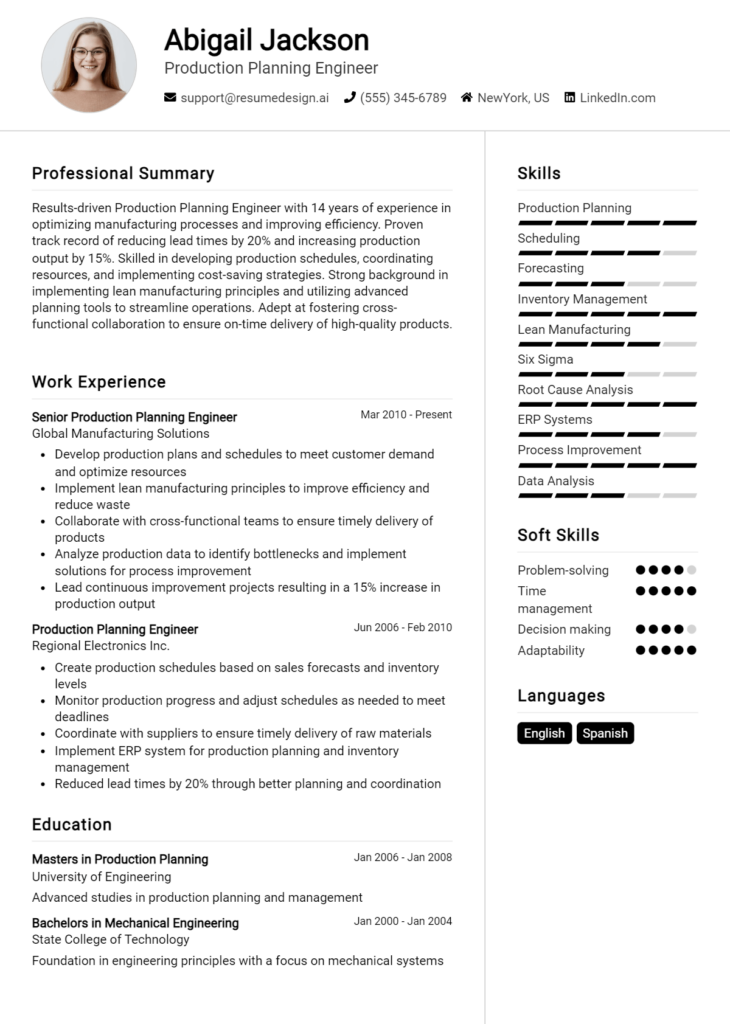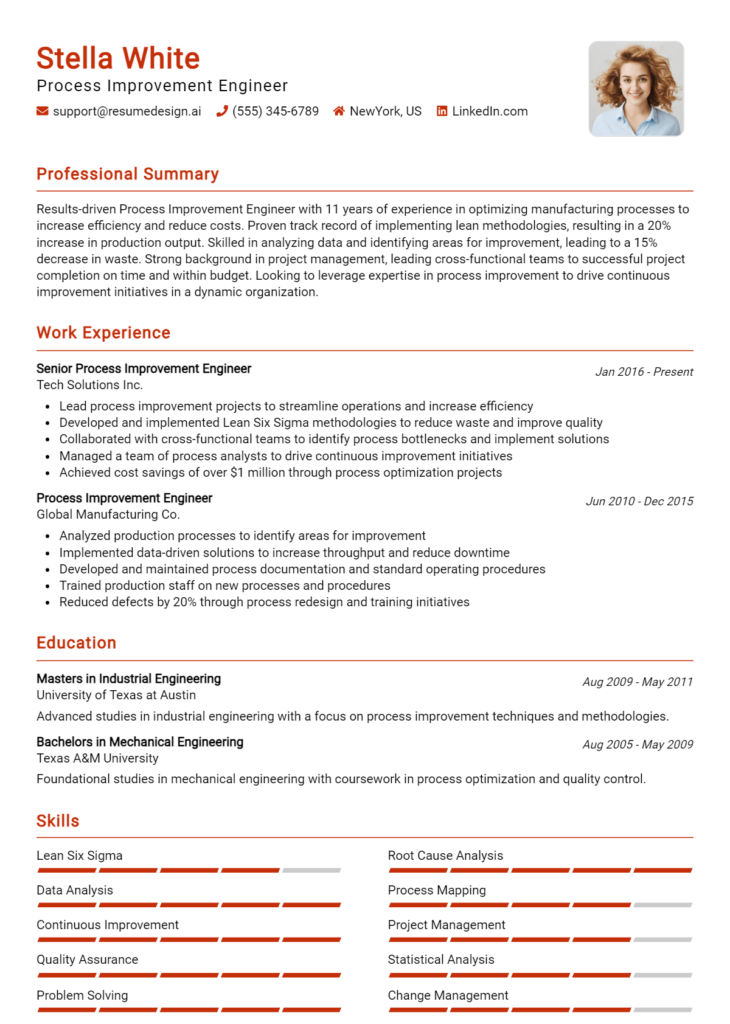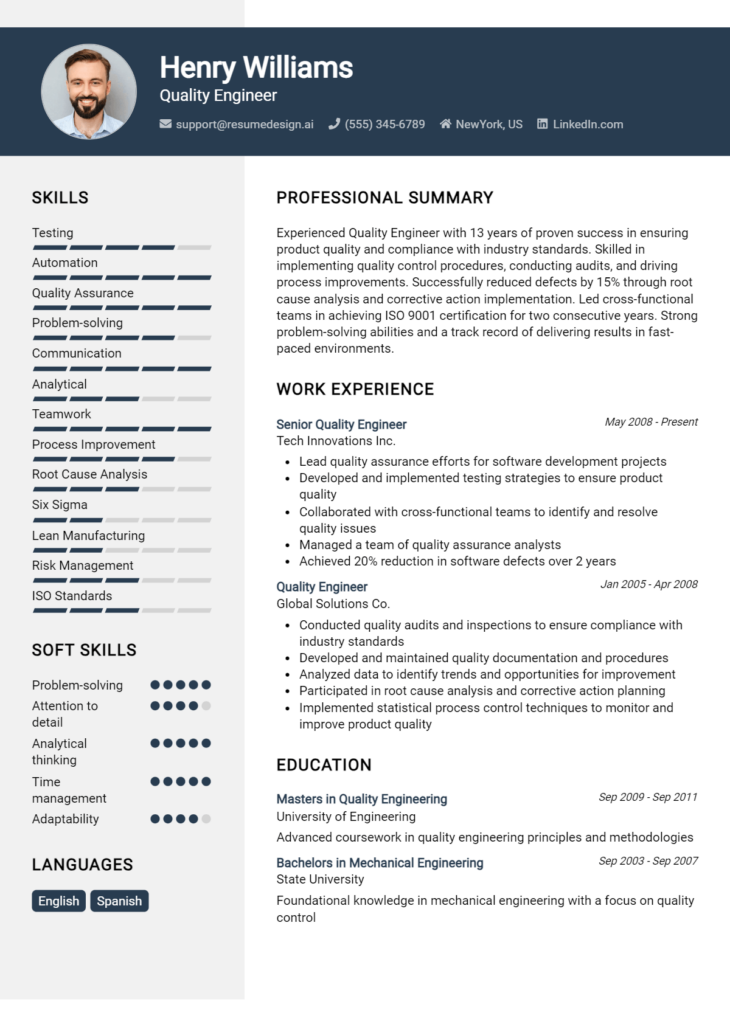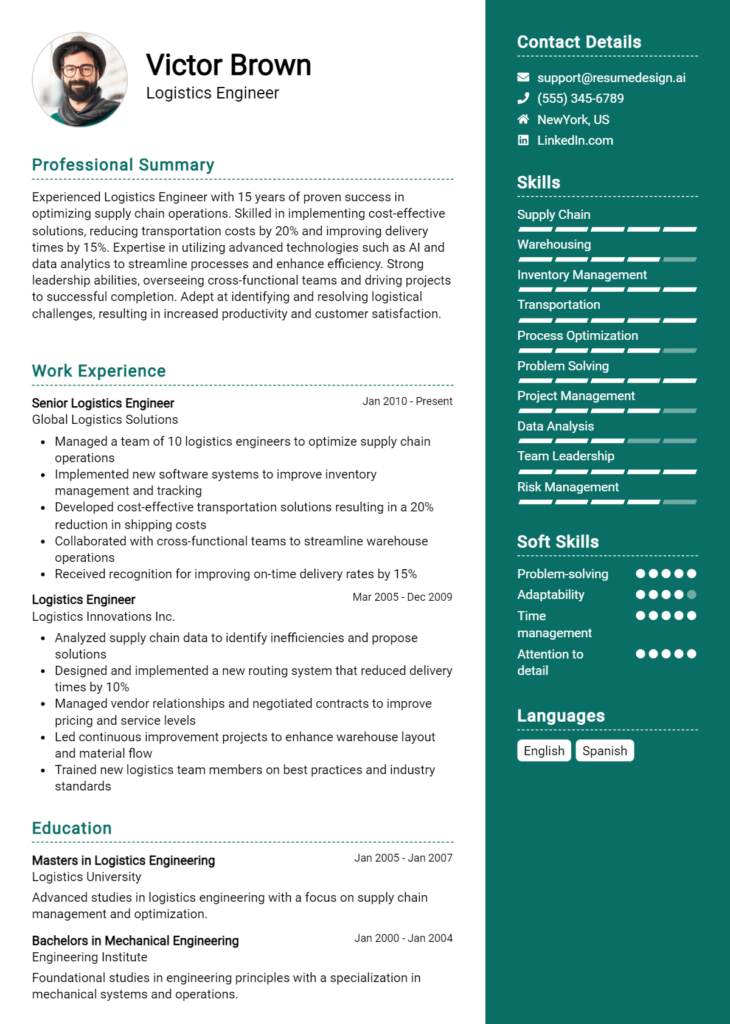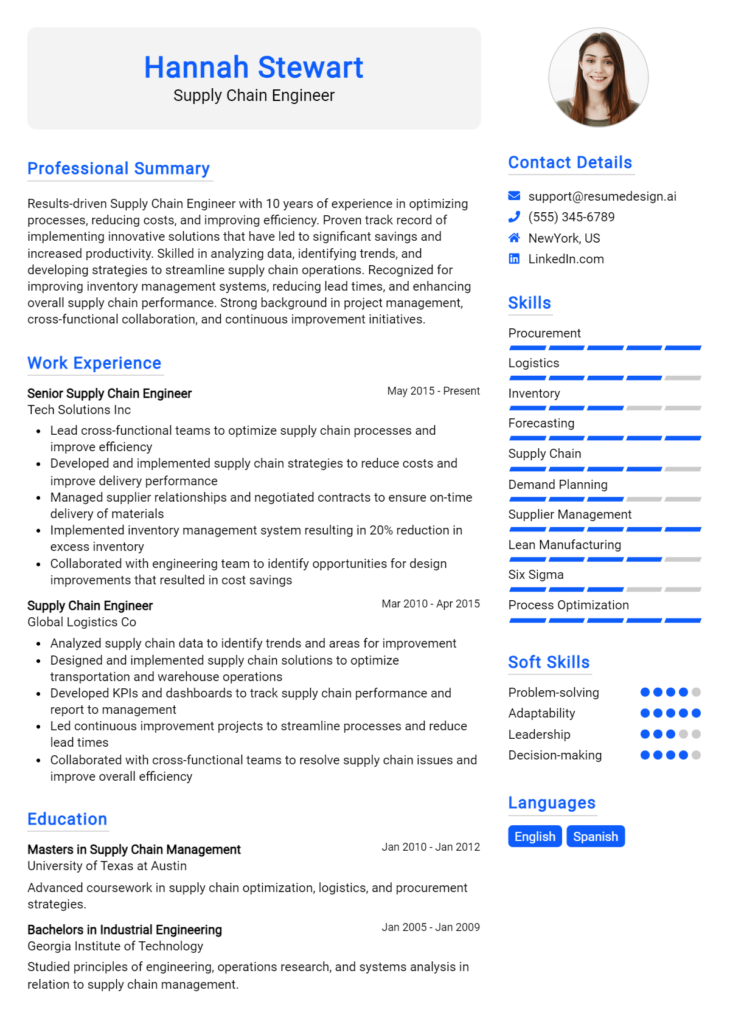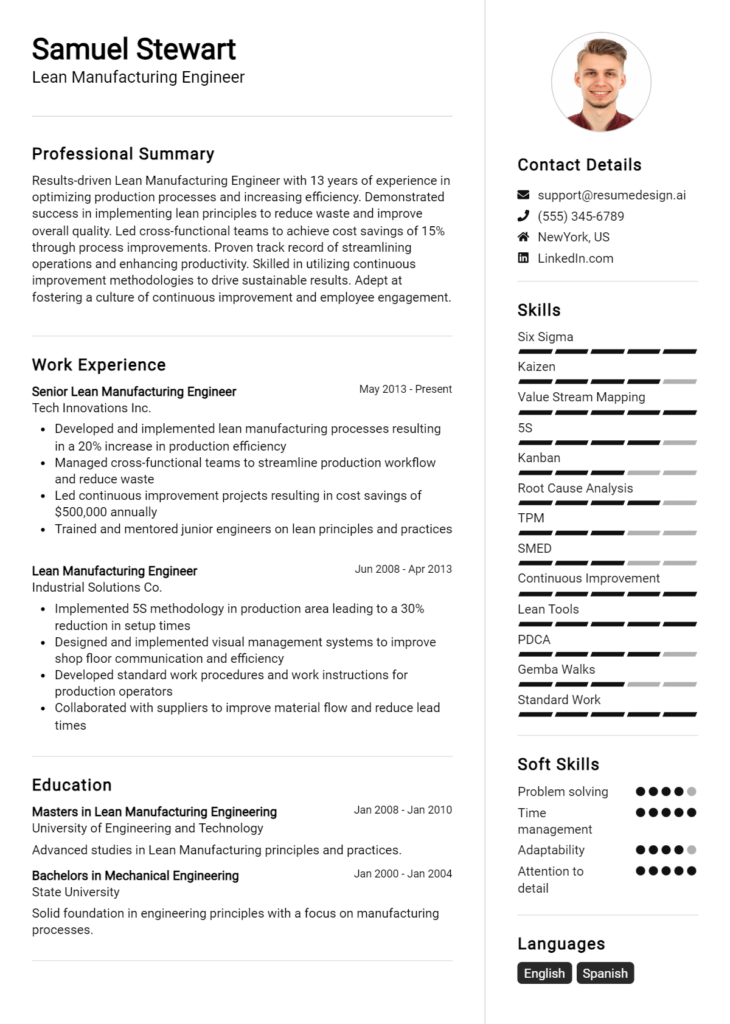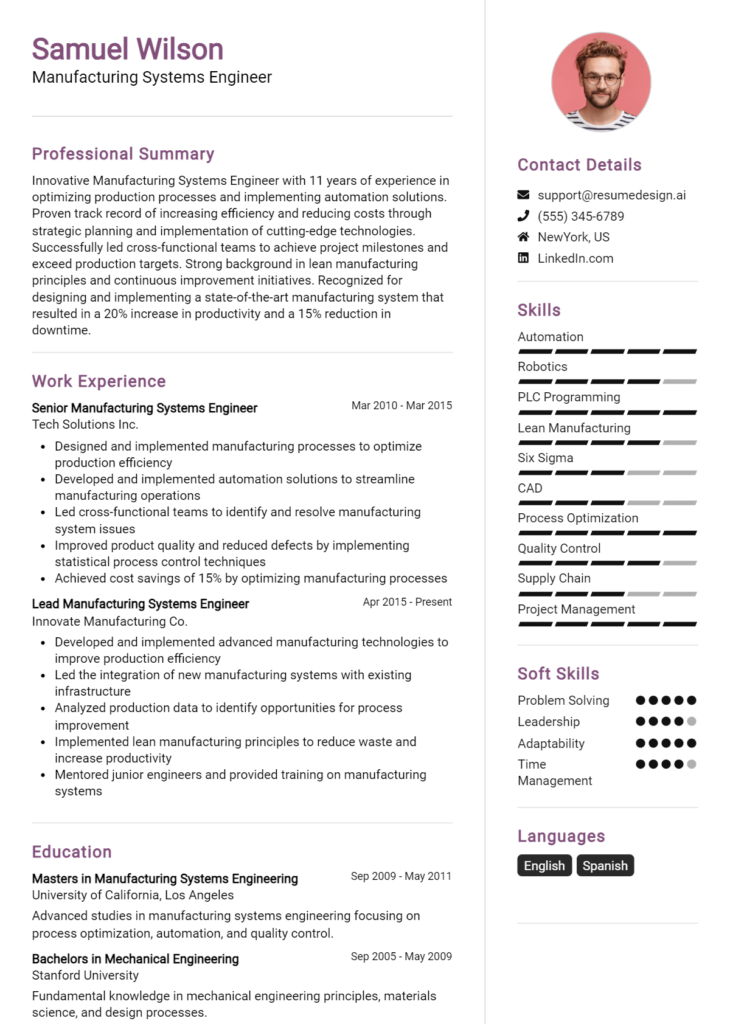Industrial Automation Engineer Core Responsibilities
An Industrial Automation Engineer plays a crucial role in enhancing operational efficiency and productivity by designing, implementing, and maintaining automated systems. This position demands strong technical skills in programming, control systems, and robotics, alongside operational insights and effective problem-solving abilities. By collaborating across departments such as production, IT, and quality assurance, these engineers ensure seamless integration of technology, driving the organization towards its strategic goals. A well-crafted resume that highlights these competencies can significantly enhance career prospects.
Common Responsibilities Listed on Industrial Automation Engineer Resume
- Design and develop automated systems for manufacturing processes.
- Program and configure PLCs, SCADA systems, and HMI interfaces.
- Conduct system testing and troubleshooting to ensure optimal performance.
- Collaborate with cross-functional teams to integrate automation solutions.
- Monitor and analyze system performance data for continuous improvement.
- Implement safety protocols and compliance standards in automation systems.
- Provide technical support and training to operational staff.
- Document system specifications, processes, and procedures.
- Evaluate and select automation technologies and vendors.
- Manage project timelines and budgets for automation initiatives.
- Stay updated with industry trends and advancements in technology.
High-Level Resume Tips for Industrial Automation Engineer Professionals
In the competitive landscape of industrial automation, a well-crafted resume is essential for professionals seeking to make a strong first impression on potential employers. Your resume serves as the initial gateway to showcase your technical skills, innovative projects, and career achievements. It is not just a list of jobs; it is a representation of your professional journey and capabilities in automating processes, improving efficiency, and driving technological advancements. Understanding how to effectively articulate your experience and qualifications can set you apart from other candidates. This guide will provide practical and actionable resume tips specifically tailored for Industrial Automation Engineer professionals, ensuring that your resume stands out in a crowded field.
Top Resume Tips for Industrial Automation Engineer Professionals
- Tailor your resume to the job description by incorporating relevant keywords and phrases that match the specific requirements of the role.
- Showcase your hands-on experience with automation systems, programming languages, and software tools pertinent to the industry, such as PLCs, SCADA, and DCS.
- Quantify your achievements by using metrics and data—such as percentage improvements in efficiency or cost savings—to demonstrate your impact on projects.
- Highlight any certifications or specialized training relevant to industrial automation, such as ISA or Six Sigma certifications, to enhance credibility.
- Include a dedicated section for technical skills that lists your proficiency in specific tools, technologies, and methodologies relevant to automation engineering.
- Utilize a clean, professional layout that enhances readability, making it easy for hiring managers to quickly identify your qualifications.
- Incorporate soft skills, such as problem-solving, teamwork, and communication, which are critical in collaborative automation projects.
- Provide examples of successful projects, focusing on your role, the challenges faced, and the innovative solutions you implemented.
- Keep your resume concise, ideally no longer than one page, while ensuring that all pertinent information is included.
- Proofread for any errors or inconsistencies, as attention to detail is crucial in engineering roles.
By implementing these tips, you can significantly increase your chances of landing a job in the Industrial Automation Engineer field. A resume that effectively highlights your skills, experiences, and accomplishments not only captures the attention of hiring managers but also positions you as a strong candidate in a highly specialized industry. Investing time in crafting a compelling resume is a crucial step towards advancing your career in industrial automation.
Why Resume Headlines & Titles are Important for Industrial Automation Engineer
In the competitive field of industrial automation engineering, a well-crafted resume headline or title can play a pivotal role in capturing the attention of hiring managers. A strong headline serves as a succinct summary of a candidate's key qualifications and expertise, allowing them to stand out in a sea of applications. It should be concise, relevant, and directly aligned with the job being pursued, effectively communicating the candidate’s suitability for the role. By encapsulating essential skills and experiences in a compelling phrase, a resume headline can make a lasting first impression and entice employers to delve deeper into the applicant's qualifications.
Best Practices for Crafting Resume Headlines for Industrial Automation Engineer
- Keep it concise: Aim for one impactful sentence or phrase.
- Be specific: Tailor the headline to reflect the specific role you are applying for.
- Highlight key strengths: Focus on your most relevant skills or accomplishments.
- Use industry keywords: Incorporate terminology that resonates within the field of industrial automation.
- Showcase experience level: Indicate if you are an entry-level, mid-career, or senior engineer.
- Be clear and direct: Avoid jargon or ambiguous terms that may confuse the reader.
- Incorporate quantifiable achievements: If possible, include figures or results to substantiate your skills.
- Stay professional: Maintain a formal tone that reflects the industry standards.
Example Resume Headlines for Industrial Automation Engineer
Strong Resume Headlines
"Results-Driven Industrial Automation Engineer with 7+ Years of Experience in Process Optimization"
“Certified Automation Professional Specializing in PLC Programming and System Integration”
“Innovative Industrial Automation Engineer Focused on Enhancing Production Efficiency Through Advanced Robotics”
Weak Resume Headlines
“Engineer Looking for Opportunities”
“Experienced Professional in Automation”
The strong headlines are effective because they clearly convey the candidate's expertise, experience, and specific skills relevant to the industrial automation sector. They utilize industry-specific language and present quantifiable achievements, making them more appealing to hiring managers. In contrast, the weak headlines lack specificity and fail to highlight the candidate's unique qualifications or strengths, rendering them forgettable and ineffective in a competitive job market.
Writing an Exceptional Industrial Automation Engineer Resume Summary
In the competitive field of industrial automation, a resume summary serves as a critical first impression for potential employers. It encapsulates a candidate’s key skills, experience, and notable accomplishments, effectively capturing the attention of hiring managers at a glance. A well-crafted summary can distinguish a candidate from others by highlighting specific competencies and relevant background tailored to the job they are applying for. By being concise and impactful, a strong resume summary sets the tone for the rest of the resume, encouraging the hiring manager to delve deeper into the candidate’s qualifications.
Best Practices for Writing a Industrial Automation Engineer Resume Summary
- Quantify achievements to showcase impact, such as “Increased production efficiency by 30% through automation solutions.”
- Focus on relevant skills, including technical expertise in PLC programming, robotics, or system integration.
- Tailor the summary to align with the job description, using keywords and phrases found in the posting.
- Use action verbs to convey dynamism and initiative, such as “Designed,” “Implemented,” or “Optimized.”
- Keep it concise, ideally 2-4 sentences, to maintain the reader’s interest.
- Highlight specific technologies or methodologies familiar to the industry, like SCADA systems or Lean Manufacturing principles.
- Incorporate problem-solving abilities by mentioning challenges faced and solutions devised.
- Showcase certifications or additional qualifications that enhance credibility in the field.
Example Industrial Automation Engineer Resume Summaries
Strong Resume Summaries
Results-driven Industrial Automation Engineer with over 8 years of experience in designing and implementing automated systems. Increased production efficiency by 35% at XYZ Corp through the deployment of advanced PLC technologies and robotics.
Detail-oriented automation specialist with a proven history of optimizing manufacturing processes. Successfully reduced operational costs by 20% by integrating IoT solutions and real-time monitoring systems at ABC Industries.
Innovative Industrial Automation Engineer with expertise in SCADA and HMI systems. Led a team that developed a custom automation solution, resulting in a 40% decrease in downtime and improved overall system reliability.
Weak Resume Summaries
Experienced engineer looking for a position in industrial automation.
Skilled in automation and interested in working at a reputable company.
The examples provided illustrate the stark contrast between strong and weak resume summaries. Strong summaries effectively quantify achievements, highlight specific skills, and demonstrate relevance to the industrial automation role, making them impactful and memorable. In contrast, weak summaries lack detail, specificity, and measurable outcomes, rendering them ineffective in capturing the interest of hiring managers. A well-crafted resume summary is essential for standing out in the competitive job market and should clearly reflect the candidate's value proposition to potential employers.
Work Experience Section for Industrial Automation Engineer Resume
The work experience section of an Industrial Automation Engineer resume is critical as it serves as a testament to the candidate’s technical abilities, leadership skills, and capability to deliver high-quality results in complex environments. This section not only highlights specific technical proficiencies relevant to automation systems but also emphasizes the candidate's experience in managing teams and collaborating effectively with cross-functional groups. It is essential to quantify achievements and align past experiences with industry standards to demonstrate the value brought to previous roles, thereby making a compelling case for potential employers.
Best Practices for Industrial Automation Engineer Work Experience
- Use specific technical terminology relevant to automation technologies, such as PLCs, SCADA, and robotics.
- Quantify achievements with metrics, such as percentage improvements in efficiency or reductions in downtime.
- Highlight leadership roles and responsibilities in projects to showcase team management capabilities.
- Include collaborative projects that demonstrate the ability to work with other engineering disciplines.
- Tailor the experience section to match job descriptions and industry requirements for better alignment.
- Focus on outcomes and results rather than just duties, emphasizing the impact of your contributions.
- Incorporate industry-specific certifications and technologies that you have utilized effectively.
- Maintain clarity and conciseness to ensure the information is easily digestible for hiring managers.
Example Work Experiences for Industrial Automation Engineer
Strong Experiences
- Led a team of 10 engineers in a project to implement a new PLC system, resulting in a 30% increase in production efficiency and a 15% reduction in operational costs.
- Designed and executed a SCADA system upgrade that improved real-time data acquisition by 40%, enhancing decision-making processes across the plant.
- Collaborated with cross-functional teams to develop an automated quality control system that reduced defect rates by 25%, significantly improving product quality.
- Managed a $500,000 budget for automation projects, completing all initiatives under budget and ahead of schedule.
Weak Experiences
- Worked on various automation projects without specifying any outcomes or contributions.
- Assisted in the maintenance of equipment and tools, lacking detail on specific responsibilities or achievements.
- Participated in team meetings to discuss automation strategies, but did not describe any notable outcomes or impacts from those discussions.
- Responsible for the upkeep of automation systems with no quantifiable results or successes mentioned.
The examples categorized as strong experiences are considered effective because they provide clear, quantifiable achievements that demonstrate not only technical skills but also leadership and collaborative efforts that led to significant improvements and successes. In contrast, the weak experiences lack detail and measurable outcomes, making it difficult for potential employers to gauge the candidate’s true capabilities and contributions to past roles.
Education and Certifications Section for Industrial Automation Engineer Resume
The Education and Certifications section of an Industrial Automation Engineer resume is crucial for showcasing the candidate's academic background and industry-relevant credentials. This section not only highlights formal education but also emphasizes the importance of certifications and continuous learning efforts in a rapidly evolving field. By providing relevant coursework, specialized training, and recognized certifications, candidates can greatly enhance their credibility and demonstrate their alignment with the job requirements, making a compelling case for their suitability for the role.
Best Practices for Industrial Automation Engineer Education and Certifications
- Include degrees that are directly related to industrial automation, such as Electrical Engineering or Mechatronics.
- List certifications from recognized organizations like ISA, Rockwell Automation, or Siemens.
- Highlight any specialized training programs that pertain to automation software or hardware.
- Provide details of relevant coursework that showcases your knowledge in automation technologies.
- Emphasize advanced credentials, such as a Master’s degree or professional engineering licenses.
- Keep the section updated with the latest certifications or training received.
- Avoid listing irrelevant degrees or certifications that do not pertain to the field of industrial automation.
- Organize the information in reverse chronological order to highlight the most recent achievements first.
Example Education and Certifications for Industrial Automation Engineer
Strong Examples
- Bachelor of Science in Electrical Engineering, XYZ University, 2020
- Certified Automation Professional (CAP), International Society of Automation, 2021
- Advanced Diploma in Industrial Automation, ABC Technical Institute, 2022
- Relevant Coursework: Control Systems, PLC Programming, Robotics, and Process Automation
Weak Examples
- Bachelor of Arts in History, DEF University, 2018
- Certification in Basic Computer Skills, GHI Academy, 2019
- High School Diploma, JKL High School, 2016
- Outdated certification in Legacy Automation Systems, 2015
The examples listed as strong are considered relevant because they align closely with the skills and knowledge required for an Industrial Automation Engineer position. They demonstrate a commitment to the field through specialized education and recognized certifications. In contrast, the weak examples reflect qualifications that do not pertain to industrial automation and could detract from the candidate's credibility. Degrees in unrelated fields or outdated certifications fail to showcase the candidate's qualifications effectively, potentially hindering their chances in a competitive job market.
Top Skills & Keywords for Industrial Automation Engineer Resume
In the competitive field of industrial automation, crafting a compelling resume is crucial for standing out among potential employers. Highlighting relevant skills not only demonstrates your expertise but also signals your ability to contribute effectively to an organization's automation goals. A well-structured resume that emphasizes both hard and soft skills can make a significant difference in securing interviews and landing job offers. Understanding the requirements of the job and aligning your skills accordingly is essential for showcasing your value as an Industrial Automation Engineer.
Top Hard & Soft Skills for Industrial Automation Engineer
Soft Skills
- Problem Solving
- Communication Skills
- Teamwork and Collaboration
- Adaptability
- Time Management
- Analytical Thinking
- Attention to Detail
- Creativity
- Leadership
- Project Management
Hard Skills
- PLC Programming (e.g., Allen-Bradley, Siemens)
- SCADA Systems
- HMI Development
- Industrial Networking (e.g., Ethernet/IP, Profibus)
- Robotics and Automation Systems
- Control Systems Design
- Troubleshooting and Maintenance
- CAD Software Proficiency
- Data Analysis and Visualization
- Knowledge of Industry Standards (e.g., ISO, IEC)
By integrating these key skills into your resume, along with your relevant work experience, you can significantly enhance your chances of making a positive impression on hiring managers in the industrial automation sector.
Stand Out with a Winning Industrial Automation Engineer Cover Letter
Dear Hiring Manager,
I am writing to express my interest in the Industrial Automation Engineer position at [Company Name], as advertised on [Job Board/Company Website]. With a strong background in industrial automation systems, programming, and process optimization, I am confident in my ability to contribute effectively to your team. My hands-on experience with PLC programming, SCADA systems, and robotics has equipped me with the skills necessary to design and implement efficient automation solutions that enhance productivity and reduce operational costs.
In my previous role at [Previous Company Name], I successfully led a project to upgrade an aging manufacturing line by integrating advanced automation technologies. This initiative resulted in a 30% increase in production efficiency and a significant reduction in downtime. I utilized my expertise in developing control algorithms and troubleshooting complex systems to ensure seamless integration across multiple platforms. My ability to collaborate with cross-functional teams and communicate technical information to non-technical stakeholders was key in achieving project goals and maintaining alignment with overall business objectives.
I am particularly drawn to [Company Name] because of its commitment to innovation and excellence in industrial automation. I admire your recent advancements in [specific technology or project related to the company], and I am excited about the opportunity to contribute to similar initiatives. With my proactive approach to problem-solving and my passion for continuous improvement, I am eager to help [Company Name] remain at the forefront of the automation industry.
Thank you for considering my application. I look forward to the opportunity to discuss how my skills and experiences align with the needs of your team. I am excited about the possibility of contributing to [Company Name] and helping drive your automation projects to new heights.
Sincerely,
[Your Name]
[Your Phone Number]
[Your Email Address]
Common Mistakes to Avoid in a Industrial Automation Engineer Resume
When crafting a resume for an Industrial Automation Engineer position, it's crucial to present your skills and experiences effectively. However, many candidates make common mistakes that can hinder their chances of landing an interview. Understanding these pitfalls can help you create a more compelling resume that highlights your qualifications and aligns with industry expectations.
Lack of Specificity: Failing to include specific technologies, systems, or methodologies you’ve worked with can make your resume vague and less impactful. Be explicit about the tools and platforms you are proficient in, such as PLCs, SCADA systems, or robotics.
Overly Technical Jargon: While technical expertise is essential, using too much jargon can alienate hiring managers who may not be familiar with every term. Aim for a balance between technical language and clear, accessible explanations of your skills.
Ignoring Soft Skills: Industrial automation roles often require teamwork, communication, and problem-solving abilities. Neglecting to mention these soft skills can make your application seem one-dimensional. Include examples that demonstrate your interpersonal skills.
Poor Formatting: A cluttered or overly complicated resume format can detract from your message. Use a clean, professional layout with clear headings and bullet points to enhance readability and ensure that key information stands out.
Not Tailoring the Resume: Sending a generic resume without customizing it for the specific job can signal a lack of interest or effort. Tailor your resume to align with the job description, emphasizing relevant experience and skills.
Neglecting Achievements: Simply listing job responsibilities without highlighting your accomplishments can make your resume less impressive. Quantify your achievements with metrics, such as reduced downtime or increased efficiency, to demonstrate your impact.
Excessive Length: While it’s important to provide comprehensive information, a resume that is too long can be overwhelming. Aim for one page if you have less than 10 years of experience, and focus on the most relevant information.
Omitting Certifications and Training: Industrial automation often requires specific certifications. Failing to mention relevant certifications, such as Six Sigma or Certified Automation Professional (CAP), can lead to missed opportunities. Be sure to include any certifications that enhance your qualifications.
Conclusion
As an Industrial Automation Engineer, your expertise in designing, implementing, and maintaining automated systems is crucial in today's manufacturing landscape. This role demands a strong foundation in control systems, robotics, and process optimization. Throughout this article, we have explored the essential skills required for success in this field, including proficiency in programming languages such as PLC, knowledge of industrial networking, and experience with various automation technologies.
Moreover, we highlighted the importance of staying updated with industry trends and continuous learning to enhance your skill set. Networking with other professionals and participating in relevant training can significantly contribute to your career growth.
As you reflect on your career journey and the skills you've acquired, it's essential to ensure your resume effectively showcases your qualifications and experiences. A well-crafted resume can make a significant difference in standing out to potential employers.
Now is the perfect time to review your Industrial Automation Engineer resume and make any necessary updates. To assist you in this process, take advantage of the available resources such as resume templates, which provide a solid foundation for your resume design, or use the resume builder for a more personalized approach. Additionally, explore resume examples for inspiration and ideas on how to present your skills effectively. Don't forget to enhance your application with a compelling cover letter template that highlights your passion and suitability for the role.
By leveraging these tools and resources, you can create a standout resume that captures the attention of hiring managers and opens the door to exciting opportunities in industrial automation. Take action today and invest in your career advancement!

